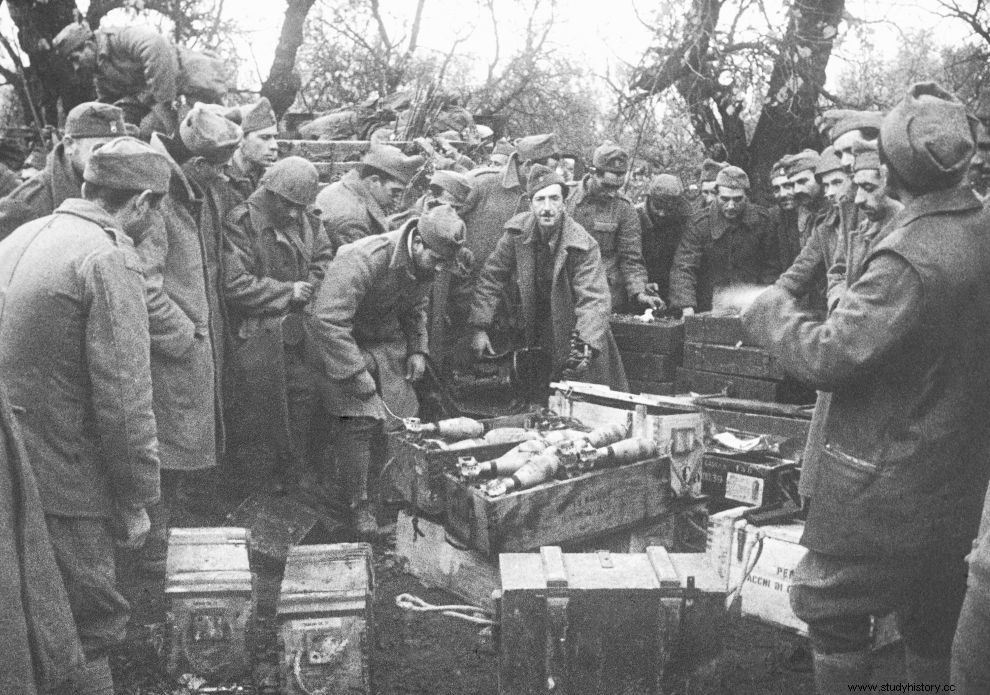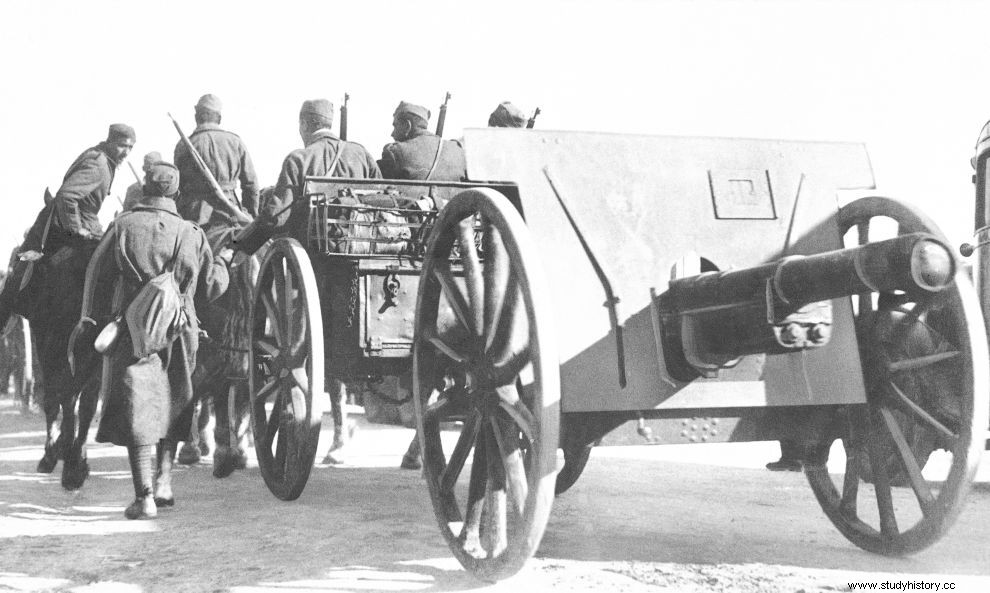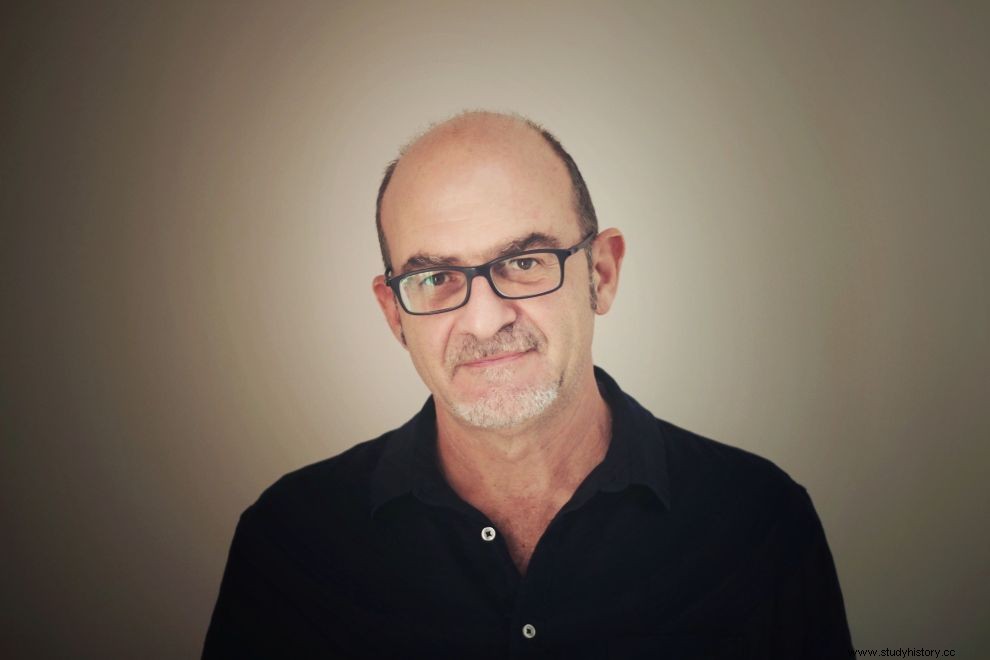We can arbitrarily define the age at which a person begins to remember and understand 8 to 10 years. Well, biologically a person who has experienced the events of the Second World War is now at an age that certainly exceeds 85 years. Relative to today's life expectancy, the War generation is in its west. Few experiences remain alive for us to hear. But what does it mean for history and for Greek society that the generation of the Resistance and the civil war is lost?
The Magazine he addressed the historian Polymeris Vogli trying to see if something will change in the narrative of World War II when the eyewitnesses will not be present.

The reason for our discussion is that we were looking for a war veteran to talk to us and couldn't find one. Does this mean something about how we will tell the story of World War II in Greece?
I don't think the narrative about the Greco-Italian war or World War II in general will change. The narrative has been established over the decades in the historical consciousness of Greek society. It is a national and unifying narrative, October 28 is an example of a "glorious past" and so there is no need to worry about whether the way we narrate the war will change.
Beyond Greece, in the world the fact that the generation that lived through the horrors of the war is slowly "leaving" can favor the strengthening of late followers of totalitarian regimes?
The emergence of followers of fascism or Nazism is not related to the fact that the generation that lived through the horrors of war and the crimes of the Nazis is no longer alive. Certainly, in previous decades the generation that had lived through the horrors of the Occupation was in a sense a bulwark in the attempts of historical revisionism and the emergence of late Hitler admirers. However, memory alone is not sufficient to deal with such phenomena. The appearance of neo-Nazis in Greece, for example, is a symptom of a deeper political and ideological crisis, and of course dealing with such phenomena requires the constant vigilance of both society and the state. If we cannot protect democracy from its enemies, then there is a very serious problem in the institutions and mechanisms of the state (justice, police, etc.)
While the revolution of 1821 has produced a number of heroes, nothing similar has happened with World War II. Obviously we are talking about different historical times, but did the civil war play an important role in how we dealt with the heroes of the Albanian Epic and the resistance?
Very interesting and correct observation. I think the main reason is that the revolution of 1821 was based on warlords and not a regular army. This fact gave the possibility of distinction on the battlefield to chieftains who stood out for their courage, intelligence and self-sacrifice in the war against the Ottomans. With the regular army, things are different, there is little room for initiative in the orders issued by the military leadership. That is why modern wars are wars of generals, although of course they are conducted by officers and ordinary soldiers. Also, in some cases the distinction of some top officers during the Greco-Italian war was overshadowed by their later actions, such as e.g. their participation in the government of the former prime minister and lieutenant general, G. Tsolakoglou
Does the fact that a generation is no longer biologically alive allow us to speak more objectively about it?
It certainly gives us the necessary distance to discuss the past. I would avoid saying "objectively", because the issue is not so much about the generation as the past itself. I mean, if the past can fit into the national narrative, then that can happen relatively quickly. Such is the case of the Greco-Italian war, which from very early on was registered in the collective and then the historical memory of Greek society as a heroic, patriotic war, as an "epic". The same did not happen with other historical periods or wars. The most well-known example is the civil war, which due to its divisive character, still cannot be included in the historical memory of Greek society, and therefore it is better to remain in the realm of oblivion. Let us think of the case of Cyprus in July 1974. The silence that covers the Greek involvement is not due to the fact that the generation that participated and experienced the events of the Turkish invasion is alive but that the event itself cannot be included in the historical memory because tarnishes the image of the collective self.

Who is it What are the characteristics of the WWII generation?
If I wanted to say it in two words, it is the will to resist. Let's not forget that the majority of infantrymen, reservists and also many officers who fought in 1940-41 against the Italian forces, shortly after will start fighting again through the lines of the national liberation organizations against the occupying forces. In 1940-41 despite being attacked by a stronger country and at a time when the power of the Axis powers seemed invincible, Greek soldiers and officers, and with them Greek society, strongly resisted the Italian invasion and then advanced . In 1941-44, despite the overwhelming armament and the overwhelming numerical superiority of the occupying forces, despite the reprisals and terrorism, despite the deprivations, hundreds of thousands of citizens, mainly from the EAM, resisted and fought. What fuels the will to resist? The belief in the need to defend the collective, i.e. the homeland and freedom.
"It's not even war" is a saying we hear very often in recent years when we are faced with difficulties such as the memorandum or the pandemic. Firstly, fewer and fewer people know what war is, and secondly, is such a comparison valid? That is, each generation does not have its own "wars" to face.
Fortunately, they are not wars, in the literal sense of the term. War is death, brutality and destruction. World War II and the Occupation for Greece meant hunger, reprisals, the extermination of the country's Jewish population, the burning of hundreds of villages by the occupying forces. This means that we better avoid using terms like war, invasion, occupation, etc. if we do not want the terms to lose their content and historical load. It also means that those who use these terms to describe contemporary problems or challenges are actually making political use of the past.

Done that question has a big "if". It is known that history is not written with "ifs", but how would the "generation of the Second World War" and Greece have been shaped if the civil war had not taken place?
Since it is difficult to answer hypothetical scenarios, let me make two thoughts. The first is that the 1940s is a turning point in Greek history because it changes the political, ideological and cultural map of the country at the time. While pre-war the great divide was between pro-Benizelists and anti-Benizelists, as early as the 1940s and for many subsequent decades the divide changed, it was between Right and Left. This division was created during the years of the Occupation and therefore even if the Civil War had not happened, this rivalry between the Right and the Left would have existed, with less intensity of course. The second thought is that the Civil War was the "filter" through which the collective memory of the 1940s as a whole was formed. To put it another way, if the Civil War had not happened, post-war Greek society would understand, remember, and it would otherwise celebrate the Greco-Italian war and, above all, the Resistance. Of course, this applies much more to the protagonists, the "40's generation". Let's not forget how many thousands of soldiers who fought in Albania and participated in the Resistance, after the Liberation were persecuted and imprisoned...
